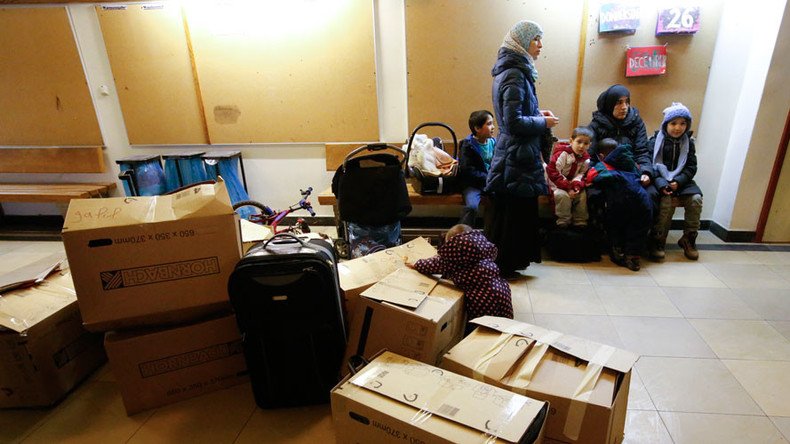Refugee crisis a goldmine for German shelter entrepreneurs

While Germany is facing a great challenge with the inflow of migrants, some are managing to turn it into a lucrative business opportunity.
Looking after Germany’s refugees cost €20 billion last year after almost a million asylum seekers arrived in the country, the Financial Times reported. Even though social services and local authorities are tasked with the issue of migrant housing, feeding and integrating them into German society, much of the money is allocated to private companies and individuals.
Owners of warehouses, hangars, hotels and hostels have quickly converted their properties into shelters. And the crisis has formed a new type of entrepreneur — the shelter manager.
“From the start it was clear this could turn into a serious business,” Raif Kuhirt whose company Die Akzente-Sozial runs three refugee shelters in Berlin told FT. “The only question was whether it was just short-lived or something that had real long-term prospects.”
Kuhirt is a big fan of Chancellor Angela Merkel’s open-door refugee policy. He is among hundreds of businessmen who won contracts to run hostels.
Berlin’s city government pays Kuhirt’s company €25 per refugee per day, which is nearly €5 million a year. The businessman is bidding for contracts to run modular housing complexes and container villages across Germany, as refugees are gradually moved out of their ad hoc shelters.
“It’s become my business,” Kuhirt said, adding “I live from it, and so do all my employees.”
However, contracts with private entrepreneurs have been strongly criticized. Many of them have been awarded without public tenders. The watchdog Berlin Audit Office said the way Berlin’s social affairs ministry, known as LaGeSo handled contracts for refugee accommodation was “unlawful”. LaGeSo replied it was “inadvisable” to carry out tenders for “emergency accommodation” and the main priority was ensuring people had a roof over their heads.
The growing number of migrants is starting to affect Germany’s property market. As a result, the number of Germans who had earlier supported the government’s liberal stance on migration is falling.
Results of a study last month from Postbank showed the lack of housing in the country would inevitably lead to prices rising. The bank predicts surging property prices in 36 major German cities, assuming that by 2030 almost one million migrants will receive refugee status and stay in the country. To meet the growing demand, Germany needs to build at least 350,000 new homes a year, according to Construction Minister Barbara Hendricks.














